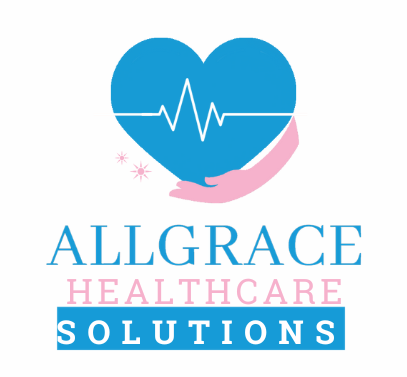Health assessments play a crucial role in providing quality care for elderly patients. As individuals age, their bodies undergo various changes, making them more susceptible to health issues and complications. Health assessments are necessary to monitor the overall health and well-being of elderly patients, identify any potential health issues, and develop appropriate care plans. These assessments help healthcare professionals gain a comprehensive understanding of the patient’s health status and provide personalized care based on their specific needs.
Key Takeaways
- Health assessments are crucial in elder care to identify health issues and provide appropriate care.
- The goals of health assessments in elder care include identifying health issues, developing care plans, and monitoring progress.
- Types of health assessments used in elder care include physical exams, cognitive assessments, and functional assessments.
- Regular health assessments for elderly patients are important to detect health issues early and prevent complications.
- Factors to consider when conducting health assessments for elderly patients include their medical history, medications, and lifestyle habits.
Understanding the Goals of Health Assessments in Elder Care
The primary goals of health assessments in elder care are to evaluate the patient’s physical, mental, and emotional well-being, identify any existing or potential health issues, and develop appropriate care plans. These assessments involve a comprehensive evaluation of the patient’s medical history, current symptoms, lifestyle factors, and functional abilities. By conducting health assessments, healthcare professionals can gain valuable insights into the patient’s overall health status and make informed decisions regarding their care.
Health assessments also help in identifying health issues that may be common among elderly patients. As individuals age, they are more likely to develop chronic conditions such as heart disease, diabetes, arthritis, and dementia. By conducting regular health assessments, healthcare professionals can detect these conditions early on and implement appropriate interventions to manage them effectively.
Types of Health Assessments Used in Elder Care
There are several types of health assessments used in elder care, each serving a specific purpose:
1. Comprehensive Geriatric Assessment (CGA): This assessment involves a thorough evaluation of the patient’s physical health, mental health, functional abilities, social support system, and environmental factors. It helps healthcare professionals gain a holistic understanding of the patient’s overall well-being and develop personalized care plans.
2. Cognitive Assessment: This assessment focuses on evaluating the patient’s cognitive function, including memory, attention span, problem-solving skills, and language abilities. It helps in identifying any cognitive impairments or dementia-related conditions.
3. Fall Risk Assessment: Falls are a common concern among elderly patients and can lead to serious injuries. Fall risk assessments involve evaluating the patient’s balance, gait, muscle strength, and environmental factors to determine their risk of falling.
4. Nutritional Assessment: This assessment evaluates the patient’s dietary habits, nutritional status, and any specific dietary needs. It helps in identifying any nutritional deficiencies or malnutrition issues.
The Importance of Regular Health Assessments for Elderly Patients
Regular health assessments are crucial for elderly patients as they help in detecting health issues early on and preventing further complications. As individuals age, their bodies undergo various changes that make them more susceptible to chronic conditions and age-related diseases. Regular health assessments allow healthcare professionals to monitor the patient’s health status and intervene promptly if any issues arise.
Moreover, regular health assessments help in preventing health issues by promoting healthy lifestyle choices and early intervention. By conducting these assessments regularly, healthcare professionals can identify any risk factors or warning signs and provide appropriate guidance to the patient. For example, if a patient is at risk of developing diabetes, regular health assessments can help in monitoring their blood sugar levels and implementing lifestyle modifications to prevent the onset of the condition.
Factors to Consider When Conducting Health Assessments for Elderly Patients
When conducting health assessments for elderly patients, several factors need to be considered to ensure accurate results:
1. Communication: Elderly patients may have hearing or cognitive impairments that can affect their ability to communicate effectively. Healthcare professionals should use clear and simple language, allow enough time for the patient to respond, and consider alternative communication methods if necessary.
2. Cultural Sensitivity: Cultural beliefs and practices can influence an individual’s perception of health and well-being. Healthcare professionals should be sensitive to these cultural factors and adapt their assessment techniques accordingly.
3. Physical Limitations: Elderly patients may have physical limitations that can affect their ability to participate in certain assessments. Healthcare professionals should consider these limitations and modify the assessment techniques as needed.
4. Medications: Elderly patients often take multiple medications, which can have an impact on their health status. Healthcare professionals should review the patient’s medication list and consider any potential interactions or side effects when conducting health assessments.
Benefits of Health Assessments in Elder Care for Patients and Caregivers

Health assessments in elder care offer several benefits for both patients and caregivers:
1. Early Detection of Health Issues: Regular health assessments help in detecting health issues early on, allowing for prompt intervention and treatment. This can prevent further complications and improve the patient’s overall health outcomes.
2. Personalized Care: Health assessments provide healthcare professionals with valuable information about the patient’s specific needs and preferences. This allows for the development of personalized care plans that address the patient’s unique requirements.
3. Improved Quality of Life: By identifying and addressing health issues, health assessments can significantly improve the patient’s quality of life. They can help in managing chronic conditions, reducing pain and discomfort, and promoting overall well-being.
4. Peace of Mind for Caregivers: Health assessments provide caregivers with valuable insights into the patient’s health status, allowing them to provide appropriate care and support. This can alleviate caregiver stress and anxiety, knowing that they are providing the best possible care for their loved ones.
Best Practices for Conducting Health Assessments in Elder Care
To ensure accurate health assessments in elder care, healthcare professionals should follow these best practices:
1. Establish Rapport: Building a trusting relationship with the patient is essential for accurate health assessments. Healthcare professionals should create a comfortable and non-judgmental environment that encourages open communication.
2. Use Standardized Assessment Tools: Standardized assessment tools help in ensuring consistency and accuracy in health assessments. Healthcare professionals should use validated tools that are specifically designed for elderly patients.
3. Involve Multidisciplinary Team: Health assessments in elder care often require input from various healthcare professionals, including physicians, nurses, therapists, and social workers. Involving a multidisciplinary team ensures a comprehensive evaluation of the patient’s health status.
4. Continuity of Care: Regular health assessments should be conducted to monitor the patient’s health status over time. This allows healthcare professionals to track any changes or trends and adjust the care plan accordingly.
Common Health Issues Identified Through Elderly Health Assessments
Health assessments in elder care often identify common health issues that are prevalent among elderly patients:
1. Chronic Conditions: Elderly patients are more likely to develop chronic conditions such as heart disease, diabetes, arthritis, and respiratory diseases. Health assessments help in identifying these conditions and implementing appropriate management strategies.
2. Cognitive Impairment: Dementia and other cognitive impairments are common among elderly patients. Health assessments can help in detecting these conditions early on and providing appropriate support and interventions.
3. Nutritional Deficiencies: Elderly patients may be at risk of malnutrition or nutritional deficiencies due to various factors such as decreased appetite, difficulty chewing or swallowing, or medication interactions. Health assessments can identify these issues and provide appropriate dietary recommendations.
Strategies for Addressing Health Concerns Identified in Elderly Health Assessments
Once health concerns are identified through elderly health assessments, several strategies can be implemented to address them:
1. Medication Management: If medication interactions or side effects are identified, healthcare professionals can adjust the patient’s medication regimen or provide alternative treatment options.
2. Lifestyle Modifications: Health assessments can identify lifestyle factors that may contribute to health issues. Healthcare professionals can provide guidance on healthy eating, exercise, stress management, and other lifestyle modifications to improve the patient’s overall health.
3. Rehabilitation Services: If functional limitations are identified, healthcare professionals can refer the patient to rehabilitation services such as physical therapy, occupational therapy, or speech therapy to improve their functional abilities.
4. Supportive Services: Health assessments can identify the need for additional support services such as home healthcare, social services, or caregiver support. These services can help in addressing the patient’s specific needs and improving their overall well-being.
The Role of Health Assessments in Providing Quality Elder Care
In conclusion, health assessments play a vital role in providing quality care for elderly patients. These assessments help in monitoring the patient’s health status, identifying any existing or potential health issues, and developing appropriate care plans. By conducting regular health assessments, healthcare professionals can detect health issues early on and implement interventions to prevent further complications. Health assessments also provide valuable information for caregivers, allowing them to provide personalized care and support. Overall, health assessments are essential in ensuring the well-being and quality of life for elderly patients.
If you’re interested in learning more about the vital role of home carers in our society, I highly recommend checking out this insightful article from All Grace Healthcare. It provides an in-depth look at this crucial and often overlooked profession. Additionally, if you want to stay informed about influenza causes, symptoms, treatment, and prevention, this comprehensive overview from All Grace Healthcare is a must-read. And for those who are passionate about nurturing healthy kids, All Grace Healthcare has also published a helpful guide to children’s health and well-being.






0 Comments